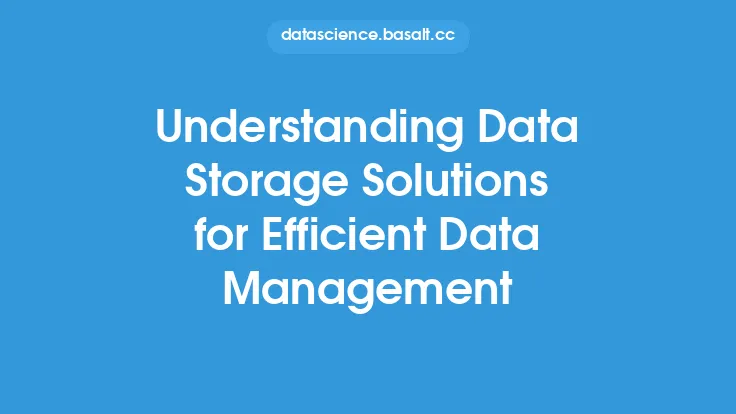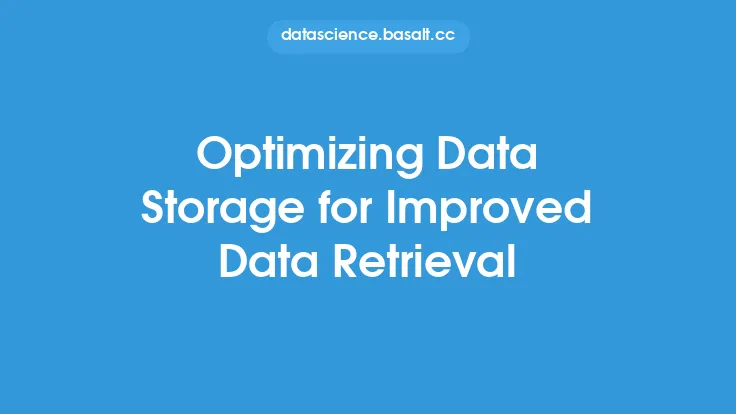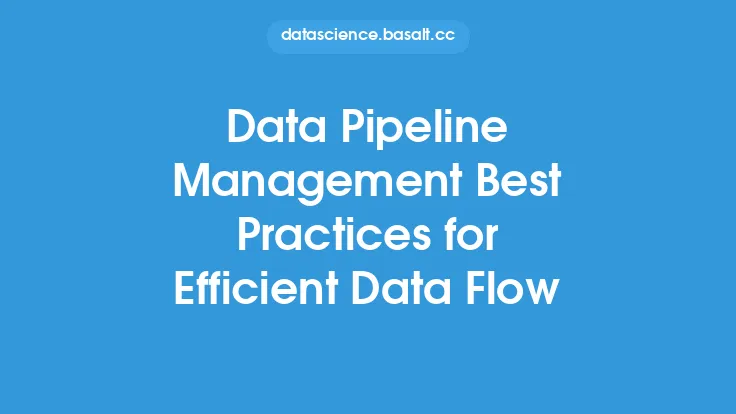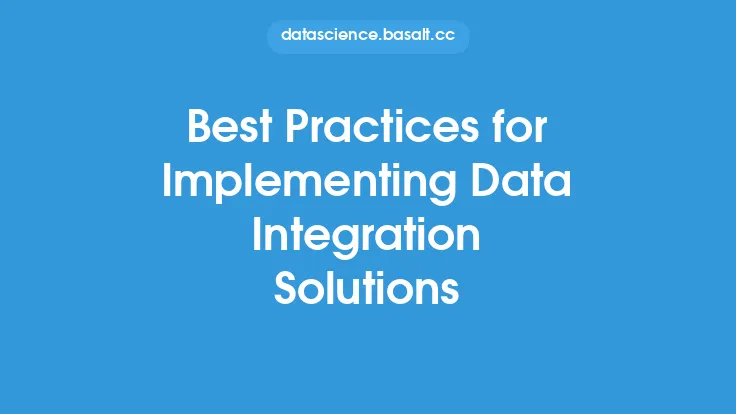Data storage is a critical component of data governance, as it enables organizations to manage, protect, and utilize their data assets effectively. With the exponential growth of data, organizations face significant challenges in storing, managing, and retrieving their data. In this article, we will delve into the world of data storage solutions, exploring the various options available, their characteristics, and the factors to consider when selecting a data storage solution for efficient data governance.
Introduction to Data Storage Solutions
Data storage solutions refer to the systems, technologies, and methodologies used to store, manage, and retrieve data. These solutions can be categorized into several types, including direct-attached storage (DAS), network-attached storage (NAS), storage area networks (SANs), and cloud-based storage. Each type of storage solution has its strengths and weaknesses, and the choice of solution depends on the organization's specific needs, data types, and usage patterns.
Characteristics of Data Storage Solutions
When evaluating data storage solutions, several characteristics must be considered. These include capacity, performance, scalability, reliability, security, and manageability. Capacity refers to the amount of data that can be stored, while performance measures the speed at which data can be accessed and retrieved. Scalability is the ability of the storage solution to grow with the organization's data needs, and reliability ensures that data is always available and accessible. Security is critical, as it protects data from unauthorized access, theft, or damage. Manageability refers to the ease of use, maintenance, and administration of the storage solution.
Types of Data Storage Solutions
There are several types of data storage solutions available, each with its unique features and benefits. Direct-attached storage (DAS) is a dedicated storage device connected directly to a server or computer. Network-attached storage (NAS) is a specialized file-level storage device connected to a network, providing shared access to files. Storage area networks (SANs) are block-level storage systems that provide high-performance, low-latency access to data. Cloud-based storage solutions, such as object storage, file storage, and block storage, offer scalable, on-demand storage capacity and are often used for data archiving, backup, and disaster recovery.
Factors to Consider When Selecting a Data Storage Solution
When selecting a data storage solution, several factors must be considered. These include the type and amount of data to be stored, data growth rates, performance requirements, security and compliance needs, scalability and flexibility, and total cost of ownership (TCO). The organization's data management policies, data retention and archiving requirements, and disaster recovery needs must also be taken into account. Additionally, the storage solution's compatibility with existing infrastructure, ease of integration, and vendor support are critical considerations.
Data Storage Solution Architectures
Data storage solution architectures can be categorized into several types, including centralized, decentralized, and hybrid architectures. Centralized architectures store all data in a single location, providing ease of management and control. Decentralized architectures distribute data across multiple locations, offering improved performance and scalability. Hybrid architectures combine elements of centralized and decentralized architectures, providing a balance between management and scalability.
Data Storage Management Best Practices
Effective data storage management is critical for efficient data governance. Best practices include data classification, data deduplication, data compression, and data encryption. Data classification involves categorizing data based on its importance, sensitivity, and retention requirements. Data deduplication eliminates duplicate copies of data, reducing storage capacity requirements. Data compression reduces the size of data, improving storage efficiency. Data encryption protects data from unauthorized access, ensuring confidentiality and integrity.
Conclusion
In conclusion, data storage solutions play a vital role in efficient data governance. By understanding the various types of data storage solutions, their characteristics, and the factors to consider when selecting a solution, organizations can make informed decisions about their data storage needs. Effective data storage management, including data classification, deduplication, compression, and encryption, is critical for ensuring data integrity, security, and availability. As data continues to grow in volume, variety, and velocity, organizations must prioritize data storage solutions that provide scalability, flexibility, and reliability, enabling them to unlock the full potential of their data assets.





